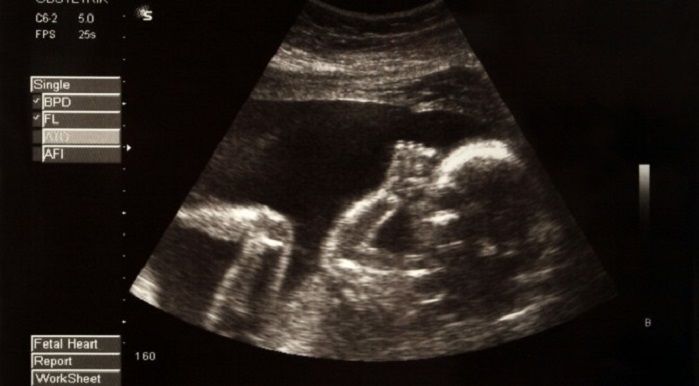 A Georgia Senate committee advanced a pro-life bill Monday that would prohibit abortions after an unborn baby’s heartbeat is detectable.
A Georgia Senate committee advanced a pro-life bill Monday that would prohibit abortions after an unborn baby’s heartbeat is detectable.
The state Senate Science and Technology Committee voted 3-2 to move the bill to the full state Senate while abortion activists disrupted the meeting by shouting “shame,” Fox News 5 reports.
Georgia House Bill 481, the Living Infants Fairness and Equality (L.I.F.E.) Act, would ban abortions on an unborn baby after their heartbeat is detectable, around six weeks. It would allow exceptions for rape, incest and threats to the mother’s life. In addition, the bill would allow parents to claim unborn babies as dependents on their taxes and include the unborn baby in census data. It also would allow mothers to collect child support for pregnancy and delivery costs from the father prior to the baby’s birth.
After the committee vote, police escorted pro-life Republican lawmakers from the room, which suggests there were security concerns about abortion activists, according to The Atlanta Journal-Constitution.
State Rep. Ed Setzler, the lead sponsor of the bill, said his goal is to protect unborn babies, who already are unique, living human beings by six weeks of pregnancy.
“Protecting life in the womb with a human heartbeat is what science, law and human conscience would suggest,” Setzler said.
The full state Senate could vote on the bill as early as this week. Gov. Brian Kemp is pro-life.
RELATED: Abortionist: I Cut Unborn Babies’ Cords So They Can’t Scream
“Today, we took another step to ensure that life is valued and protected in Georgia,” Kemp wrote on Twitter Monday. “I thank the Senate Science and Technology Committee for their work and look forward to HB 481 receiving consideration by the full Senate.”
 The bill passed the state House earlier this month after a contentious debate. Pro-abortion Democratic lawmakers turned their backs on Setzler at one point in the debate, according to the Gainesville Times. Others walked off the floor while he was speaking. At another point, state Rep. Renitta Shannon, a pro-abortion Democrat, refused to yield the floor and had her microphone cut off.
The bill passed the state House earlier this month after a contentious debate. Pro-abortion Democratic lawmakers turned their backs on Setzler at one point in the debate, according to the Gainesville Times. Others walked off the floor while he was speaking. At another point, state Rep. Renitta Shannon, a pro-abortion Democrat, refused to yield the floor and had her microphone cut off.
This winter, pro-life lawmakers have introduced a number of heartbeat bills including in Florida, Mississippi, Missouri, Ohio, South Carolina, Tennessee and Texas.
Some pro-lifers have renewed hope that the new conservative-majority U.S. Supreme Court will uphold an abortion ban and overturn Roe v. Wade. Others, however, are hesitant because of concerns about losing the court battle and being forced to reimburse pro-abortion groups for their legal fees.
On Friday, a federal judge blocked Kentucky’s new heartbeat bill. In January, a judge also declared Iowa’s heartbeat law unconstitutional. North Dakota and Arkansas passed heartbeat bills several years ago, but federal courts struck down their laws as well.
The Eighth Circuit Court of Appeals said the following about its ruling on the six-week abortion ban: “Because there is no genuine dispute that (North Dakota’s law) generally prohibits abortions before viability — as the Supreme Court has defined that concept — and because we are bound by Supreme Court precedent holding that states may not prohibit pre-viability abortions, we must affirm the district court’s grant of summary judgment to the plaintiffs.”
There is more hope that the U.S. Supreme Court may consider an abortion ban, but it is difficult to say if it would for certain – especially after Chief Justice John Roberts recently sided with the liberal justices on an abortion case.
Written by Micaiah Bilger for Life News ~ March 18, 2019

 FAIR USE NOTICE:
FAIR USE NOTICE: